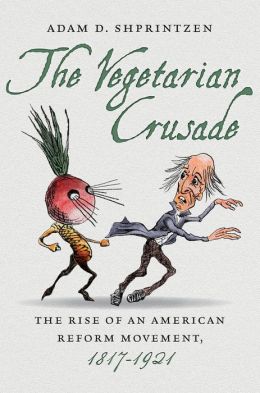I can’t believe the number of times I have been asked that question but it has just come up again in the context of recent complaints about the health and environmental hazards of eating meat. So here, once again, is my nutrition academic’s take on the nutritional implications of vegetarian diets.
Full disclosure: I eat meat. Humans are omnivores and I am one nutritionist who fully subscribes to basic, if banal, principles of healthful diets: variety, balance, and moderation. As I explain in my book, What to Eat, if you eat a variety of foods within and among groups – meat, dairy, fruit, vegetables, and grains – you don’t have to worry about nutritional details. As long as calories are adequate and the foods are relatively unprocessed, the different kinds of foods complement each other’s nutrient contents and provide everything that is needed in reasonable amounts and proportions.
With that said, it is not necessary to eat meat. Meat is not an essential nutrient. I can think of plenty of advantages to eating no meat, eating less meat, or eating meat produced in ways that are far better for the health of animals, people, and the planet.
Why anyone would question the benefits of eating vegetarian diets, or diets that are largely vegetarian is beyond me. People who eat vegetarian diets are usually healthier – sometimes a lot healthier – than people who eat meat.
But before getting into all this, there is the pesky problem of definition. What, exactly, is a vegetarian? As it happens, people who call themselves vegetarians eat many kinds of diets. The least restrictive vegetarians do not eat beef but occasionally eat pork or lamb. Next come the groups that eat no red meats, or restrict poultry, dairy, fish, or eggs. The most restrictive are vegans who eat no foods of animal origin at all.
Nutritional implications depend on the degree of restriction. The least restrictive diets, those that exclude meat but include fish, milk, or eggs, raise no nutritional issues whatsoever. People who eat such diets are likely to have a lower risk of heart disease and certain cancers than the average meat-eating American, and a risk of osteoporosis no higher.
Only the most restrictive vegetarian diets raise nutritional concerns. Vegans, who eat no foods of animal origin, need to do three things:
- Find an alternative source for vitamin B12 (supplements or fortified foods).
- Eat enough calories to maintain a good weight.
- Eat a variety of grains and beans to get enough protein.
Vitamin B12 is found only in foods of animal origin – meat, dairy, eggs, or fish. With this one exception, fruits, vegetables, and grains provide plenty of the other vitamins and minerals. Vegans who obtain enough calories from varied plant food sources should be taking care of those nutrients as well as protein.
On the protein question: Foods from animals are higher in protein than those from plants. Their proteins are of somewhat better quality, meaning that they more closely resemble human proteins. If calories are adequate, protein is rarely a problem. Protein is hardly lacking among Americans. The protein requirement is about half a gram for each pound of body weight, which works out to 55 grams for a 120-pound woman and 65 grams or so for a 180-pound man. On surveys, women report eating a daily average of 70 grams of protein, and men 100 grams, and these amounts are likely to be underestimates. Even vegans get more than enough protein from grains, beans, and vegetables as long as they get enough calories.
In relatively unprocessed foods, protein is closely linked to calories. Diets with enough calories usually contain enough protein unless the diet is unusually restrictive or includes a lot of junk food. Think about it: entire civilizations – in ancient Egypt, China, and Mexico, for example – were based on wheat, rice, beans, or corn as sources of protein. We used to think that vegetarians had to be careful to combine plant foods (beans and corn, for example) to get enough protein but we know now that variety and calories take care of it.
Developing countries are another matter. In places where food is scarce, children thrive better when they are fed a little meat (or dairy, fish, or eggs) along with whatever else they are eating, but a richer plant-based diet also works well.
That brings us to children. Is it OK to feed vegetarian diets to kids? This too depends on what is meant by “vegetarian.” If the diet restricts just beef or red meat, it poses no problems. Dairy foods, fish, and eggs are adequate substitutes. And keeping sodas and junk foods to a minimum is always a good idea.
Vegan diets are another matter and I can think of plenty of reasons why they are controversial for children. Supplements can take care of kids’ needs for vitamin B12 and other nutrients, but calories can be a serious problem. Children sometimes have a hard time when they have to get all their food energy from vegetables, grains, or beans. I advise vegan parents to pay close attention to calories, to make liberal use of olive oil and nut butters, to make sure plenty of beans, grains, and potatoes are available, and to monitor their children’s weight in comparison to lines on standard growth charts.
Except for the most restrictive diets, I wouldn’t worry at all about vegetarian diets for adults or for kids. They have plenty of what’s good for health and a lot less of what is not so good. The health advantages can be impressive. So eat your veggies!








